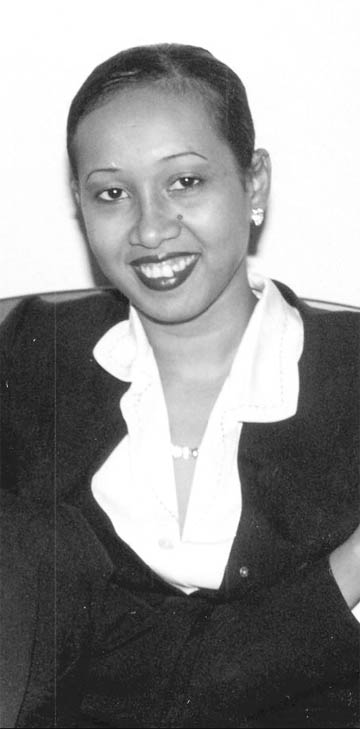 Nothing to Laugh About, a collection of satirical sketches, debuted last week at the Theatre Guild Play House. The production was a first for playwright Maria Edwards-Benschop, but it was guided by the experienced hand of stage veteran Henry Rodney. The cast also featured a mix of youth and experience, although it leaned heavily on the former.
Nothing to Laugh About, a collection of satirical sketches, debuted last week at the Theatre Guild Play House. The production was a first for playwright Maria Edwards-Benschop, but it was guided by the experienced hand of stage veteran Henry Rodney. The cast also featured a mix of youth and experience, although it leaned heavily on the former.
The producers assembled a very capable cast of novices who showed tremendous potential and the men, Lynyus Adams, Jamal La Rose, Gerard Gilkes and Joel Fraser, distinguished themselves. The entire cast managed very strong performances with material that was at times half-baked, not fully developed and most times gratuitous.
It must be said that Edwards-Benschop has a real talent for dialogue and apart from a few clichés, the characters sounded plucked from real life. But her script was at times unfocused, shifting between serious stabs at confronting real problems and cheap attempts to elicit a few laughs. As a result, the production was uneven, beginning as social commentary and too often degenerating into thin fixations on sexual intrigue. To their credit, the cast more often than not, resisted the formidable temptation to camp it up, which is never an easy whenever a man puts on a dress.
The problem is evident from the very first sketch, ‘Boom Boom Vibes’, which looks at the minibus culture. It’s an insightful portrayal of the behaviour that plays out on the roads without fail, everyday. Familiar stereotypes, like the oblivious driver, the cantankerous conductor, the fawning schoolgirl and the irritable passenger, act out their roles to perfection during a typical bus ride. Benschop-Edwards has a keen ear for dialogue and the characters take on a life of their own. But just as soon as they do and the bus inevitably crashes, Benschop-Edwards arrives at a fork in the road and is unsure of where to go next. Eventually, she opts for the low road and the sketch deviates into a row about infidelity and, if you listen carefully, identity.
A similar approach emerges in unoriginal and predictable treatment of the ‘Sheety Hall,’ ‘Joe Grind’ and ‘Queen of Kings’ sketches. The latter is a two-in-one parody of elections and the beauty pageant phenomenon though slightly, through the antics of a pageant of drag queens who serve as flimsy analogues for the country’s political leaders. President Bharrat Jagdeo, Opposition leader Robert Corbin, AFC leader Raphael Trotman and aspiring head of state Peter Ramsaroop can none be too happy with the depictions, although if it’s any consolation to him, Jagdeo wins.
Apart from the soft political targets that she seemingly takes relish in lampooning, Nothing to Laugh About also takes aim at sexual mores, crime and corruption. ‘The Trial,’ begins as an earnest attempt to examine the Roger Khan saga and its implications but it too is peppered with throwaway sex jokes that detract from the serious message Edwards-Benschop wants to impart.
A similar claim could be made about ‘The Whole Truth.’ They are not a complete loss, though, and might still be salvageable with a good rewrite. Edwards-Benschop never really interrogates the problems she is confronting, only their symptoms. When she does, like in the ‘Carifiasco’, ‘Loyalty’ and ‘Free Speech’, she produces what are arguably the cleverest and most perceptive sketches in the entire production.
Nothing to Laugh About appears not so much a satire but a broad comedy. In the end, after the laughter is ended, a man in a dress is still a man in a dress and even he has got some real problems.
